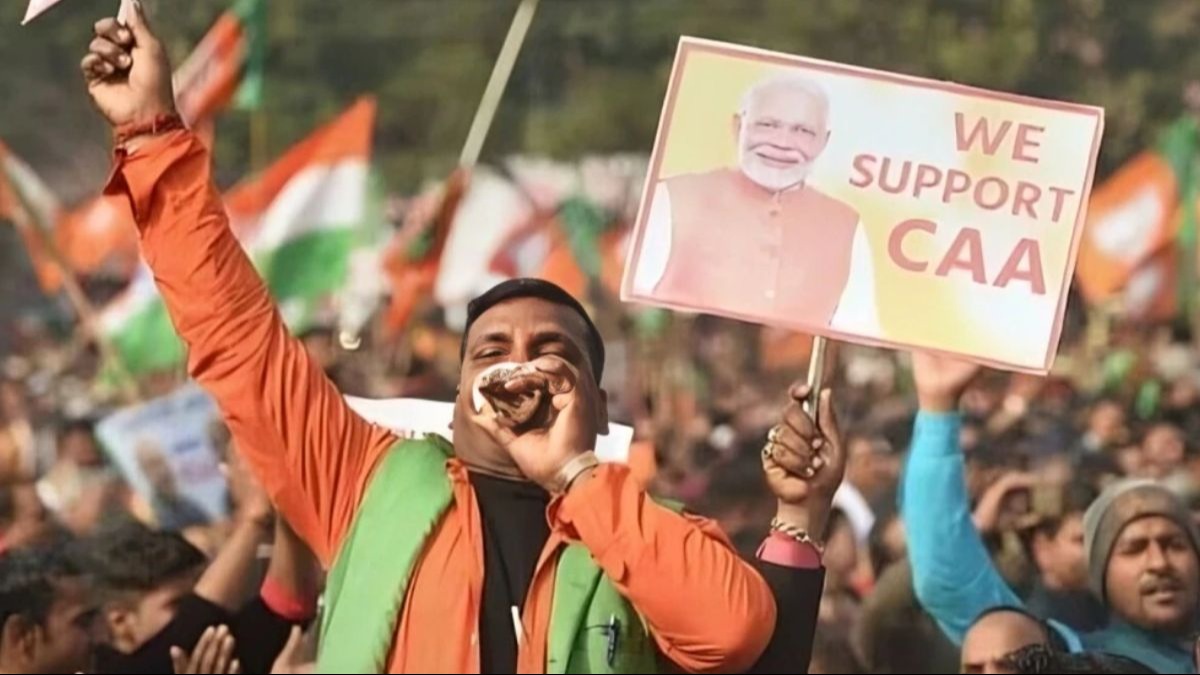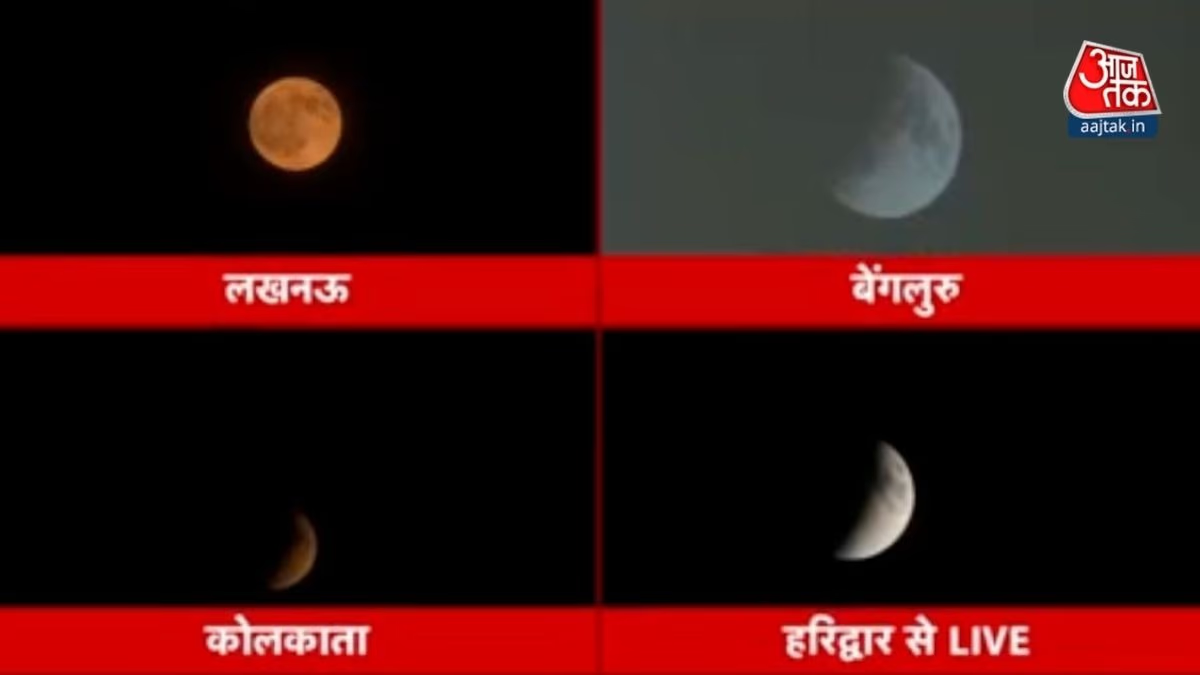CAA Updates:
Just before the Lok Sabha elections, the government rolled out the Citizenship (Amendment) Act 2024. It's official – the CAA is now live across the nation. The enactment of this law enables non-Muslim refugees (Hindus, Sikhs, Buddhists, Jains, Parsis, and Christians) from Pakistan, Afghanistan, and Bangladesh to acquire Indian citizenship. They must adhere to government guidelines and apply online for citizenship. Nonetheless, certain essential conditions must be met, such as residing continuously in India for a year before applying.
Learn the answers to 10 pressing questions about the CAA...
The CAA was passed by Parliament in December 2019. After more than four years, its rules have been notified. Union Home Minister Amit Shah has released the forms for CAA, including all necessary documents and rules. Meanwhile, protests have erupted in West Bengal, Kerala, Meghalaya, Tripura, and Assam.
1. Who will be granted citizenship?
Citizenship will be awarded to refugees who settled in India before 31 December 2014. Applicants must specify the year they entered India without travel documents. They must also provide details such as the day they entered India, any visas or immigration stamps, etc.
Discover the truth: Will Seema Haider, who distributed sweets after CAA enactment, now become an Indian citizen?
2. How will the CAA's system operate?
The entire process is digital, via a web portal. Initial applications will be reviewed by a district committee, then forwarded to an empowered committee for final citizenship decisions. This committee's chief will be the Director (Census Operations), with seven other members, including IB, foreign, regional registration offices, post offices, and state information officers.
3. What documents are crucial for citizenship under the CAA?
Applicants seeking Indian citizenship are required to fill in online forms, listing nine types of documents under Schedule- 1A, twenty under Schedule-1B, and an affidavit under Schedule- 1C. First, applicants must confirm they are non-Muslim refugees from the three nations — needing respective passports, birth certificates, educational certificates, driving licenses, land-related documents. Moreover, the Indian government's Aadhaar card, driving license, ration card, birth certificate, PAN card, land documents, utility bills, marriage certificate, etc., can also legitimize one's citizenship claim.
4. What if there are no documents?
Documents are not a mandatory requirement for filling out the form. Applicants can state the reason if any documents are missing. However, if documents are available, they must be disclosed. Applicants can apply for citizenship in the state they reside in.
5. What will need to be filled in the form?
In the online form, you'll provide information about your parents or spouse, your duration in India, where you come from, your prior residence in those countries, your occupation post-arrival, and your religious affiliation.
6. Are there separate forms for married and unmarried individuals?
A different form is available on the portal for that purpose. If you've married an Indian citizen after arriving in India, that information is necessary. There are also separate forms for children.
7. What happens if there's a criminal record?
Any criminal record must be disclosed. If the government perceives a risk in granting citizenship to such individuals, their application may be canceled.
Read More: Today, 30 organizations in Assam protest against the CAA, CM warns, Section 144 imposed in this district
8. Can citizenship ever be revoked?
No, there is no provision to strip someone of their citizenship — ensuring that no citizen faces a crisis over their citizenship status. Home Minister Amit Shah stated that the CAA does not aim to take away anyone's citizenship. Rather, it covers non-Muslim communities from Pakistan, Bangladesh, and Afghanistan who arrived before 31 December 2014.
9. How to obtain a citizenship certificate?
After filling the form and verifying the information's authenticity, applicants must sign it. Any form found fraudulent will be canceled. Once the government's verification and approval are complete, a digital certificate will be issued. If a hard copy is requested by the applicant, that will be provided as well. Certification will be digitally signed or by the chair of the empowered committee. People obtaining citizenship through naturalization will receive a digital certification of naturalization.
10. Are there any conditions for citizenship?
Applicants desiring Indian citizenship must have resided in the country for at least 12 months prior to the application date, and have spent an aggregate of at least six years in India during the eight years immediately preceding the 12-month period. They must also submit a declaration that they're irreversibly renouncing their current citizenship and wish to make India their permanent home.
Also Read: Before electoral announcements, will the Modi government wield citizenship as a political weapon?
- Declarations in every application will state that the applicant, if approved, will irreversibly renounce their country's citizenship and will not claim it in the future.- Different application forms are provided for sub-categories, including a person of Indian origin, spouse of an Indian citizen, minor child of an Indian citizen, person with Indian parents, an individual who was a citizen of independent India, an individual registered as an Overseas Citizen of India cardholder, and a person seeking citizenship through naturalization.- Applicants seeking citizenship through naturalization must submit an affidavit confirming the truthfulness of statements provided, along with an Indian citizen's testimony regarding the applicant's character.- Moreover, the applicant must submit a declaration of having sufficient knowledge of one of the languages listed in the Eighth Schedule of the Constitution.- All approved applicants must take an oath of allegiance, vowing true faith and fidelity to the Constitution of India as a citizen and promising to honestly abide by the laws established by it, fulfilling their duties entirely.
Further Reading: The district level will see the formation of an empowered committee with the authority to make decisions on citizenship
What's the citizenship application process?
The designated officer will administer an oath of fidelity to the applicant, sign the oath, and electronically forward it to the empowered committee along with verification documents. If the applicant, despite being given a fair chance, fails to physically appear to sign the application and take the oath of fidelity, the district-level committee may consider denying the application and forwarding it to the empowered committee. Only after thorough inspection and satisfaction that the applicant is a fit and proper person for registration or naturalization will the empowered committee grant Indian citizenship to the applicant.




